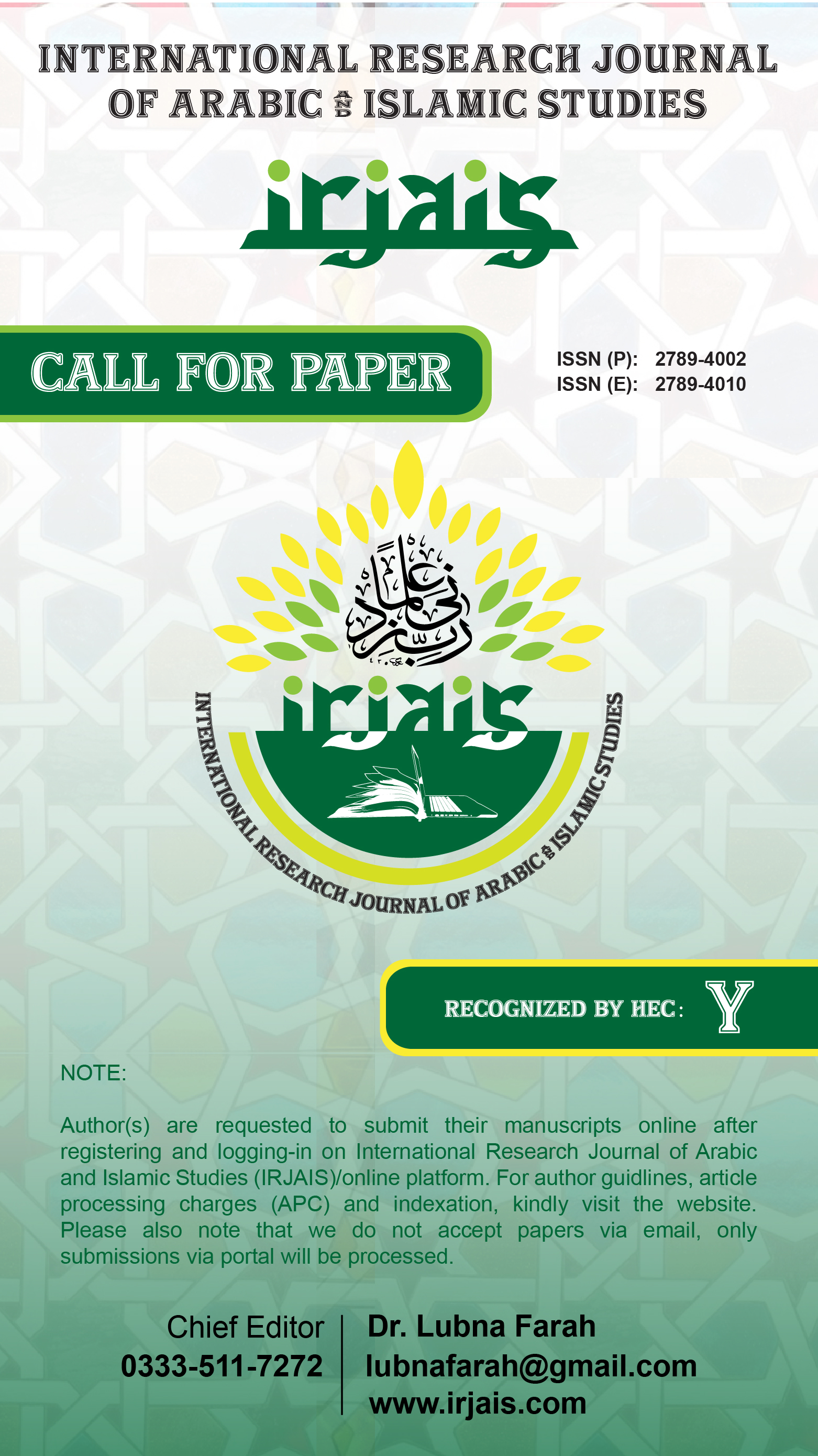تزکیۂ نفوس کا نبوی منہج اور عصر حاضر میں اس کا اطلاق:ایک مطالعہ
Prophetic Strategy of purifying the human beings and its implementation in the contemporary age. A Study
Keywords:
Purify,Characters,ways,spiritually,methodologies, humanityAbstract
Human beings are the stat of the art creations of Allah on earth. Allah used to send his selected Prophets time to time to purify them and to keep them on right path. At the end of this process Allah sent Prophet Muhammad (Peace be upon him) and declared his obligatory duty to educate and purify the humanity. He performed his duty and purified and educated the humanity in a very small span of time with his practical examples of characters and teachings. He used and adopted specific methodologies, techniques and ways and got wonderful results in just twenty-three years of time. His followers got purified personalities spiritually, practically and ethically and became the leaders and role models for others. In this article it is focused on elaboration of these Prophetic methodologies and ways so that these can be adopted to purify the persons in this era as a role model and hence to change the world with good characters, spiritual right way and ethically right path.





